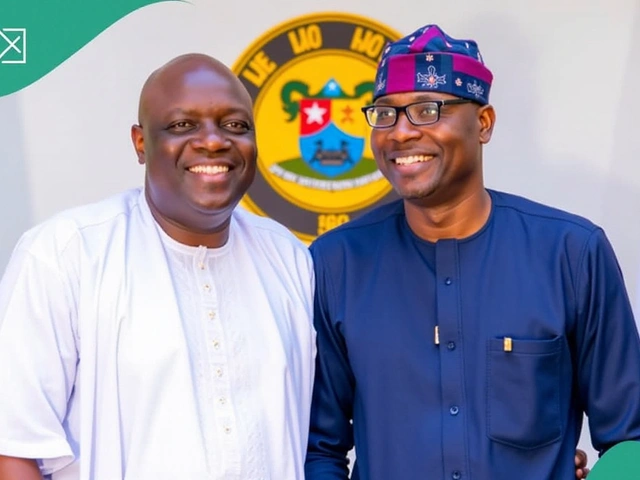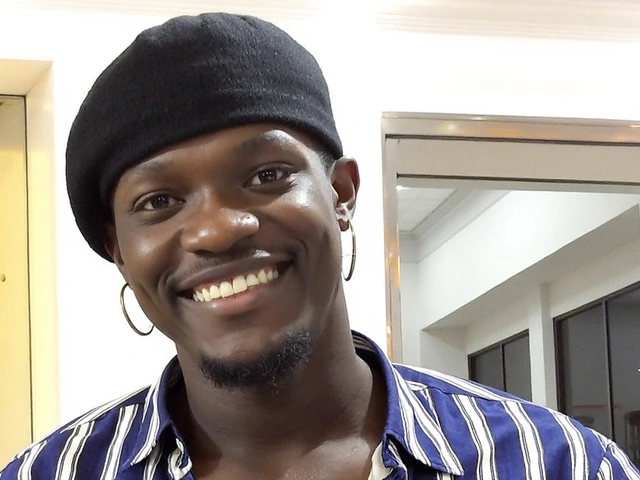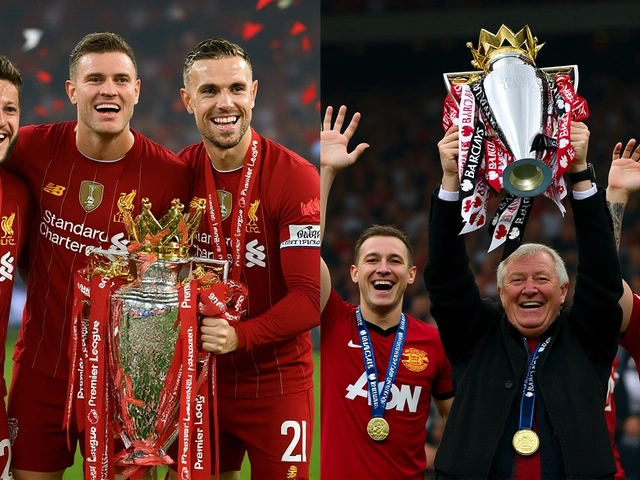Bobrisky's Controversial Arrest at Seme Border
The world of social media and Nigerian celebrity gossip is buzzing with the recent news of Idris Okuneye, best known as Bobrisky, and his arrest at the Seme Border. Bobrisky, a well-known and often controversial figure in Nigeria's entertainment industry, was reportedly apprehended while attempting to cross into Benin Republic. This arrest comes amid a whirlpool of allegations surrounding bribery and corruption involving high-ranking officials and institutions in Nigeria.
On the morning of October 21, 2024, the Nigerian immigration officers stationed at the Seme Border were put on alert. An insider source disclosed that Bobrisky was caught in an attempt to leave the country, with intentions that are still under investigation. The trigger for his flight seems to be an ongoing investigation by Nigeria's House of Representatives into alleged bribery circles connecting to both the Economic and Financial Crimes Commission (EFCC) and the Nigerian Correctional Service (NCoS). These connections allegedly involve attempts to obstruct justice by monetary influence through these institutional channels.
The Leaked Audio that Sparked Outrage
The arrest further intensifies a situation that had been brewing after social media influencer VeryDarkMan ignited a firestorm by posting an audio recording on social media. In this audio, Bobrisky allegedly admits to bribing his way out of a prison sentence. The claims suggest aid from a well-connected 'godfather' who was allegedly instrumental in having a money laundering case against him dropped by the EFCC. The audio snippet sent shockwaves across the nation, tarnishing reputations and stirring public opinion, as it apparently revealed conversational threads involving prominent personalities like the acclaimed lawyer Femi Falana and his musician-son, Folarin Falana, popularly known as Falz.
The ramifications of these revelations are profound, weaving intricate narratives of corruption that Nigerian citizens have voiced concerns over for years. The audio appears to expose a corruption scheme where wealth and connections may overpower the Nigerian legal system, allowing high-profile individuals to flaunt justice with monetary clout.

Bobrisky's Legal Troubles and Judicial Probe
Bobrisky, who is no stranger to courtrooms, had already grazed the legal paths earlier this year. On his birthday, known for its extravagant celebrations, Bobrisky found himself facing the EFCC for insensitively 'abusing the Naira'—an incident leading to a six-month jail term. Released controversially on August 5, 2024, the crossdresser's ability to navigate the loopholes of legal injunctions has often been debated. Nevertheless, the resurfacing allegations raise questions about the Nigerian judicial process itself. Is justice truly being served, or have personal influence and bribery become part of a systemic issue plaguing the country's institutions?
In light of these serious allegations, the Minister of Interior, Olubunmi Tunji-Ojo, appears committed to maintaining law and order. He has set forth a special investigative panel, tasked with rigorously probing the depth of bribery claims within the NCoS. The panel has been promised to operate with transparency and impartiality to restore faith in the justice system and reassure the public of due process.

Implications for Nigerian Society and Governance
From a broader perspective, Bobrisky's arrest is a microcosm reflecting the persistent issues with corruption that haunt Nigerian governance and its institutions. When media figures are entangled in law-related controversies, it does more than taint reputations. It emboldens narratives questioning governmental credibility and the true reach of justice, especially in societies that are still combating corruption legacies crippling progressive benchmarks.
Amidst this unfolding drama, Nigerian citizens, activists, and particularly those beckoning for justice reform, will watch meticulously as the investigative panel carries out its responsibilities. This case will potentially set a precedent, impacting future actions on corruption within Nigeria.
Beyond particular individuals, this crisis challenges the pillars of governance. It demands integrity and accountability from governmental agencies and suggests that misdeeds brought to light necessitate consequential remediation and political willpower. It remains to be seen how this investigation will evolve and what it will mean for the people caught in its crosshairs.
With the world looking on, Bobrisky’s story intertwines a narrative of notoriety, legal drama, and the fight against systemic corruption. The very fabric of Nigerian judicial processes is being tested, and the implications could reverberate far beyond the four walls of a courtroom.







5 Comments
Bobrisky's saga underscores how money can tilt justice. It also shows the limits of fame when the law catches up.
What we see here is a textbook case of systemic rot in the state's apparatus. The bribery network feeds off high‑profile figures to keep the elite insulated. The nation deserves better enforcement.
The audio leak doesn’t just expose one influencer’s illicit dealings; it illuminates a deep‑seated culture of impunity that has festered across our institutions for far too long.
When a figure as flamboyant as Bobrisky can allegedly bargain his way out of a prison sentence, it sends a chilling message that justice is a commodity for the well‑connected.
That message reverberates beyond the borders of the entertainment world, striking at the core of public trust in the EFCC, the NCoS, and even the legislative bodies that are supposed to police corruption.
It also forces us to confront the uncomfortable reality that the same mechanisms which prosecute ordinary citizens are often weaponized to shield the powerful.
The involvement of a so‑called "godfather" hints at a patron‑client system where political clout translates directly into legal leniency.
Such a system erodes the rule of law and creates a parallel hierarchy where money, not merit, dictates outcomes.
Moreover, the alleged connections to prominent legal minds like Falana only deepen the perception that the elite can navigate-or even rewrite-the legal playbook at will.
From a sociopolitical standpoint, this scandal could act as a catalyst, galvanizing civil society groups who have long decried the inequities embedded in our justice system.
It may also pressure the Minister of Interior and the investigative panel to demonstrate genuine transparency, lest they be accused of a tokenistic response.
In the interim, the public’s patience is wearing thin, and the demand for accountability is louder than ever.
If the probe yields concrete findings and tangible repercussions, it could set a precedent that deters future attempts to subvert the law.
Conversely, a superficial inquiry would only reinforce the narrative that the powerful remain untouchable.
The ramifications aren’t limited to one individual; they ripple through the entire fabric of Nigerian governance.
Ultimately, the hope is that this episode spurs a broader conversation about systemic reform and the restoration of genuine judicial integrity.
I get that the hype around Bobrisky makes the story juicy but let’s not forget the bigger picture – corruption is a disease that eats at the soul of the nation.
When celebrities skip the line, everyday folks watch in dismay and feel powerless.
The border drama is just the tip of the iceberg showing how money talks louder than law.
Stay hopeful we can fix this.